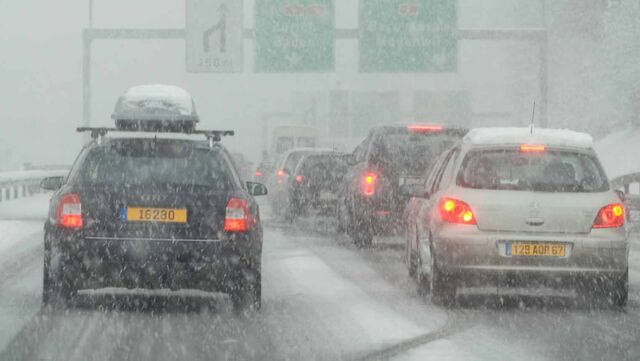The Ministry of Public Health has not yet identified cases of COVID-19 associated with the new JN.1 variant in the country, although it continues collecting samples to sequence them at the Doctor Defilló National Laboratory, since its transmission in the country has not been ruled out. , especially due to the large influx of people who come to enjoy the Christmas and New Year festivities.
The institution warns that the JN.1 variant spreads more easily, but the severity is less.
«We are collecting samples to continue sequencing, so far we have not identified it, but we are very attentive, because it is very likely that it will arrive, like others, due to the large influx of people who come to the country at Christmas. This is not something new, this variant is from the same lineage of Omicron, although it is a variant that is more easily spread, it should be noted that it would be a mild disease, high severity is not expected,” Public Health reported through a Press release.
In the document, the entity motivated citizens to take care of themselves and reiterated that adults over 65 years of age, people immunosuppressed by diseases such as Human Immunodeficiency Virus (HIV), diabetes, asthma, pulmonary fibrosis, among others, are the higher risk and should be more careful, follow established measures such as hand hygiene, avoid very closed places and protect themselves with masks if they have any flu virus to avoid spreading it.
Symptoms similar to other variants
So far, according to authorities, no symptoms different from other variants have been identified. Sore throat, cough, congestion, muscle aches and headaches, and general malaise remain.
In that order, good nutrition is also recommended to strengthen the immune system.
In addition, influenza vaccination, available at fixed vaccination posts, for children, older adults, diabetics and people with other diseases, and for the general population.
Vaccines against Covid
In the text, Public Health explains that “for JN.1 there is no vaccine, since the existing ones for COVID-19 are not effective in this variant.”
Despite this, vaccination against Covid remains active in the country.
According to the VacúnateRD portal, from December 3 to 14, 4,464 doses of coronavirus vaccines were applied: 2,256 first doses; 1,392 second dose and 816 booster doses.
Since last September, the Vice Minister of Collective Health, Eladio Pérez, announced that the Ministry of Health is in negotiations for the purchase of updated vaccines for COVID-19.
«We are making all the arrangements to make it available to all age and risk groups in our country. “We are making the coordination so that in the coming weeks we can have availability in the country,” said the epidemiologist at that time when consulted by Diario Libre.
«We have enough vaccines, even today, people continue to get vaccinated. “For people who have not received any vaccine, it is still appropriate for them to get vaccinated with the vaccine we have,” he added.
On December 13, Pérez indicated that these vaccines are not contained within the Revolving Fund of the Pan American Health Organization (PAHO) and that the Ministry must carry out negotiations directly with the pharmaceutical company Pfizer.
So far, neither the quantity under negotiation nor the possible arrival date of these updated biologics have been announced.
On the other hand, the Centers for Disease Control and Prevention (CDC) indicates on its website that respiratory disease activity is increasing rapidly throughout the United States, but vaccination rates against COVID-19, influenza and respiratory syncytial syncytial virus remain low.
“Millions of people may get sick in the next two months, and low vaccination rates mean more people will get more serious illnesses. Getting vaccinated now can help prevent hospitalizations and save lives,” they highlight.
The CDC also warned that COVID-19 hospitalizations in the United States have increased by 51% over the past four weeks. It is estimated that there were 25,500 internal patients only in the period from December 1 to 16, with an incidence of 44% positive for JN.1, that is, two out of every five infected.
About the Pfizer vaccine
The updated Pfizer vaccine has protection against the omicron XBB 1.5, 1.16 and 2.3 sublineages.
This biological comes in two presentations: one for children from 5 to 12 years old and another for those over 12 years old. It is applied in a single dose.
«Any person over five years of age has the possibility of receiving this vaccine. The highest priority is that the people at highest risk apply it as soon as possible,” Yéssica Moreno, Pfizer’s medical director for Latin America, said this Thursday when interviewed by the Mexican media group Milenio, a country where this vaccine is already being used. It is available to the population, and can even be purchased in local pharmacies.
“There is no problem if a person has had a vaccine schedule in the past that was not Pfizer and now wants to take this vaccine,” Moreno highlighted.
The recommendation is to wait six months if any other vaccination schedule against Covid was applied and you want to receive an updated booster dose against coronavirus.
FREE DAILY SOURCE
Related
2023-12-23 11:51:34
#Covid #vaccines #country #updated #JN.1 #variant


